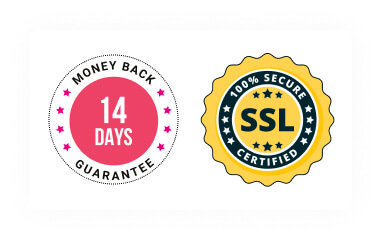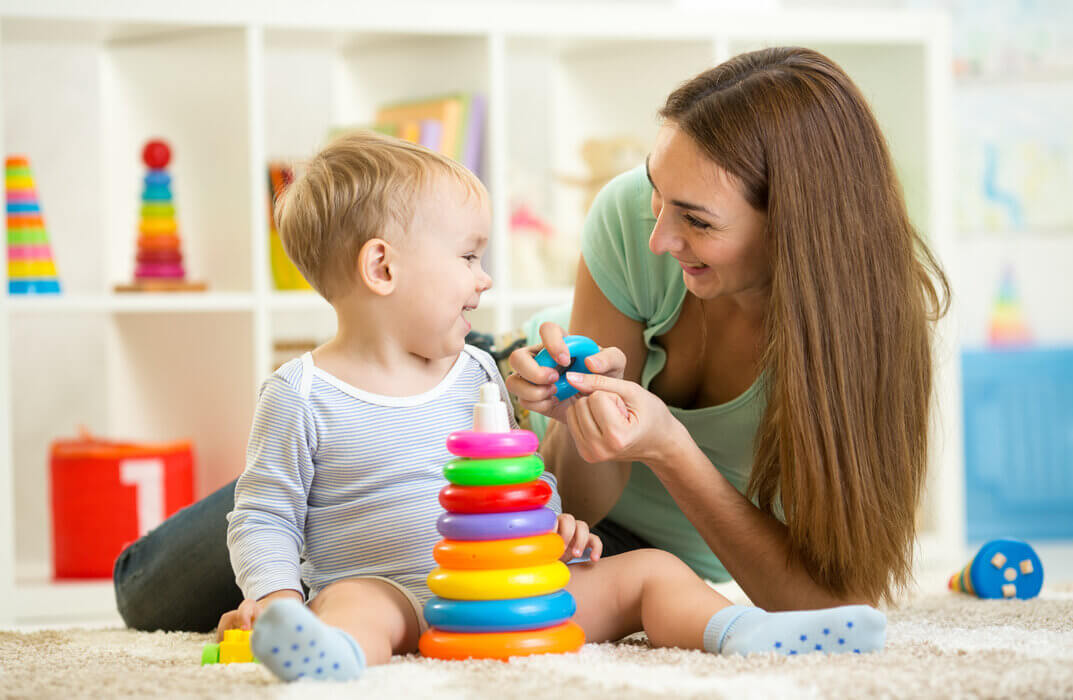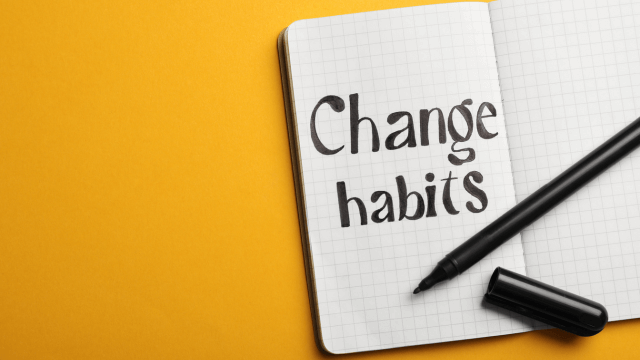Course Curriculum
| Induction Form | |||
| Induction Form | 00:05:00 | ||
| Registration Entry Form | |||
| Registration Entry Form | 00:05:00 | ||
| Guidance for Achieving the Qualification | |||
| Qualification Guidance File | 00:00:00 | ||
| Evidence Record Files | |||
| Assessor’s Observation Record File – NCFE | 00:00:00 | ||
| Witness Testimony File – NCFE | 00:00:00 | ||
| Unit 01: Roles and Responsibilities of the Early Years Practitioner | |||
| Guidance for Achieving Unit 1 | |||
| EYP 1 Guidance for Achieving the Unit | 00:00:00 | ||
| Support Materials for Unit 01 LO1 | |||
| 1. Knowledge, Skills and Behaviours Required for the Role of the Early Year Practitioner | 00:00:00 | ||
| 2. Early Years Education and Care Settings | 00:00:00 | ||
| 3. Duties and Responsibilities, Limits and Boundaries of the Early Year Practitioners | 00:00:00 | ||
| Support Materials for Unit 01 LO2 | |||
| 1. Policies and Procedures Within an Early Year Settings | 00:00:00 | ||
| 2. Responsibilities and Accountabilities of the Early Years Practitioner in Relation to Policies and Procedures | 00:00:00 | ||
| Support Materials for Unit 01 LO3 | |||
| 1. Reasons Why People Communicate and Different Communication Methods | 00:00:00 | ||
| 2. Appropriate Ways to Communicate with Babies and Young Children | 00:00:00 | ||
| 3. Children’s Development and Learning through Verbal and Non-verbal Communication | 00:00:00 | ||
| 4. Encouraging Babies and Young Children to Use a Range of Communication Methods | 00:00:00 | ||
| 5. A Range of Communication Methods to Exchange Information with Young Children and Adults | 00:00:00 | ||
| 6. Communicating Effectively with Colleagues, Parents Carers and Other Professionals | 00:00:00 | ||
| 7. Working Cooperatively with Colleagues, Other Professionals and Agencies | 00:00:00 | ||
| 8. The Role of Parents and or Carers in the Baby’s Child’s Health, Well-being, Learning and Development | 00:00:00 | ||
| Support Materials for Unit 01 LO4 | |||
| 1. Communication with Children Appropriate for All Their Stages of Development | 00:00:00 | ||
| 2. Communicating with Children Who Have English as an Additional Language(EAL) Or Who Have Delayed Speech | 00:00:00 | ||
| 3. How Communication Affects All Aspects of Practice | 00:00:00 | ||
| Support Materials for Unit 01 LO5 | |||
| 1. Working Relationship with Children and Parents | 00:00:00 | ||
| 2. Working Relationship With Colleagues And Other Professionals | 00:00:00 | ||
| 3. How a Working Relationship is Different from a Personal Relationship | 00:00:00 | ||
| 4. Roles and Responsibilities of Statutory Agencies and Professionals that Support Childcare Settings | 00:00:00 | ||
| 5. Roles and Responsibilities of Non-Statutory Agencies and Professionals that Support Childcare Settings | 00:00:00 | ||
| 6. Voice of the Child and Engagement of Parent & Carer for Home Learning Environment | 00:00:00 | ||
| Support Materials for Unit 01 LO6 | |||
| 1. Reflective Practice for Professional Development and Early Years Practice | 00:00:00 | ||
| 2. Importance of CPD to Improve Own Skills and Early Years Practice | 00:00:00 | ||
| Support Materials for Unit 01 LO7 | |||
| 1. Engage in CPD to Improve Own Skills, Practice and Subject Knowledge | 00:00:00 | ||
| 2. Reflective Practice to Improve Own Skills, Practice and Subject Knowledge | 00:00:00 | ||
| 3. Feedback, Mentoring and Supervision to Identify and Support Areas for Development, Goals and Career Opportunities | 00:00:00 | ||
| Assignment of Unit 1 | |||
| Unit 01 Roles and Responsibilities of the Early Years Practitioner | 00:00:00 | ||
| Unit 02 : Health and Safety of Babies and Young Children in the Early Years | |||
| Guidance for Achieving Unit 2 | |||
| EYP 2 Guidance for Achieving the Unit | 00:00:00 | ||
| Support Materials for Unit 02 LO1 | |||
| 1. Legal Requirements and Guidance for Health, Safety and Security | 00:00:00 | ||
| Support Materials for Unit 02 LO2 | |||
| 1. Identifying Policy and Procedure Requirements and How They Affect Daily Practice with Babies and Young Children | 00:00:00 | ||
| Support Materials for Unit 02 LO3 | |||
| 1. Early Years Practitioner Roles and Responsibilities, including Reporting in the Event of Risks and Hazards | 00:00:00 | ||
| 2. Identifying Risks and Hazards During Off-Site Visits | 00:00:00 | ||
| Support Materials for Unit 02 LO4 | |||
| 1. Identifying Risks and Hazards For Health and Safety in an Early Years Setting | 00:00:00 | ||
| Support Materials for Unit 02 LO5 | |||
| 1. Using Furniture and Materials Safely According to the Guidelines Provided by the Manufacturer and Work Setting | 00:00:00 | ||
| 2. Encouraging Children to Be Aware of Own and Others Safety | 00:00:00 | ||
| Support Materials for Unit 02 LO6 | |||
| 1. List of Accidents and Incidents Which May Occur in an Early Years Setting | 00:00:00 | ||
| Support Materials for Unit 02 LO7 | |||
| 1. Signs and Symptoms of Allergic Reaction and Intolerances in Babies and Young Children | 00:00:00 | ||
| Support Materials for Unit 02 LO8 | |||
| 1. Common Childhood Illnesses | 00:00:00 | ||
| 2. Signs Symptoms For Understanding Children’s Injury, Unwell or Urgent Medical & Dental Attention | 00:00:00 | ||
| 3. Responsibilities Of Early Years Practitioners in Case of Urgent Non-Urgent Medical Condition | 00:00:00 | ||
| Support Materials for Unit 02 LO9 | |||
| 1. Forms For Completion in the Event of Accidents, Incidents & Emergencies | 00:00:00 | ||
| 2. Procedures for Receiving, Storing, Recording, Administering, and the Safe Disposal of Medicines in an Early Years Setting | 00:00:00 | ||
| Assignment of Unit 2 | |||
| Unit 02 Health and Safety of Babies and Young Children in the Early Years | 00:00:00 | ||
| Unit 03: Equality, Diversity and Inclusive Practice in Early Years Settings | |||
| Guidance for Achieving Unit 3 | |||
| EYP 3 Guidance for Achieving the Unit | 00:00:00 | ||
| Support Materials for Unit 03 LO1 | |||
| 1. Equality, Diversity, Inclusion & Discrimination | 00:00:00 | ||
| 2. Legislation and Statutory Guidance Relating to Equality, Diversity and Inclusive Practice | 00:00:00 | ||
| Support Materials for Unit 03 LO2 | |||
| 1. Policies and Procedures Relating to Equality, Diversity and Inclusive Practice | 00:00:00 | ||
| Support Materials for Unit 03 LO3 | |||
| 1. Interaction with Babies, Young Children, Parents & Carers and the Impact of Own Attitudes, Values and Behaviour | 00:00:00 | ||
| Assignment of Unit 3 | |||
| Unit 03 Equality, Diversity and Inclusive Practice in Years Settings | 00:00:00 | ||
| Unit 04: Safeguarding, Protecting and Wellfare of Babies and Young Children in Early Year Settings | |||
| Guidance for Achieving Unit 4 | |||
| EYP 4 Guidance for Achieving the Unit | 00:00:00 | ||
| Support Materials for Unit 04 LO1 | |||
| 1. Legal Requirements and Guidance on Babies and Young Children’s Welfare | 00:00:00 | ||
| 2. Policies and Procedures Relating to Safeguarding, Child Protection and Online Safety | 00:00:00 | ||
| 3. Roles and Responsibilities of Individuals and Safety, Security, Child protection | 00:00:00 | ||
| 4. Information Sharing and Technology Uses Procedures for Early Year practitioners | 00:00:00 | ||
| 5. Confidentiality, Reporting and Dealing with Disclosure | 00:00:00 | ||
| Support Materials for Unit 04 LO2 | |||
| 1. Responsibility of the Early Years Practitioner in Relation to Whistleblowing. | 00:00:00 | ||
| Support Materials for Unit 04 LO3 | |||
| 1. Types of Abuse That Might Affect Children | 00:00:00 | ||
| 2. Signs That Might Indicate That a Child is Being Affected. | 00:00:00 | ||
| 3. Benefits of Working with Others in the Context of Safeguarding, Protection and Welfare of Children. | 00:00:00 | ||
| 4. Support and Advice for Child, Parents Carers and Early Years Practitioner. | 00:00:00 | ||
| 5. Why Child Safeguarding Practice Reviews are Required. | 00:00:00 | ||
| Support Materials for Unit 04 LO4 | |||
| 1. Policies and Procedures for Safeguarding Babies and Young Children in an Early Years Settings | 00:00:00 | ||
| Assignment of Unit 4 | |||
| Unit 04 Safeguarding, Protecting and Wellfare of Babies and Young Children in Early Year Settings | 00:00:00 | ||
| Unit 05: Understand How to Support Children’s DeveLOpment | |||
| Guidance for Achieving Unit 5 | |||
| EYP 5 Guidance for Achieving the Unit | 00:00:00 | ||
| Support Materials for Unit 05 LO1 | |||
| 1. Sequential Development from Birth to Seven Years | 00:00:00 | ||
| 2. Difference Between the Sequence of Development and Rate of Development | 00:00:00 | ||
| 3. Early Learning Goals within the Statutory Framework and Curriculum Study Requirements | 00:00:00 | ||
| 4. How Children’s Needs and Stages of Development Affect Learning and Development | 00:00:00 | ||
| 5. Contribution to the Holistic Development | 00:00:00 | ||
| Support Materials for Unit 05 LO2 | |||
| 1. How Children’s Well-being and Individual Circumstances Affect Their Learning and Development | 00:00:00 | ||
| Support Materials for Unit 05 LO3 | |||
| 1. The Significance of Attachment for Children and Young Person | 00:00:00 | ||
| 2. The Role of the ‘Key Person’ in Supporting a Child’s Learning and Development | 00:00:00 | ||
| Support Materials for Unit 05 LO4 | |||
| 1. Range of Transitions and How the Key Person Prepares and Supports Babies and Young Children During Transitions | 00:00:00 | ||
| Assignment of Unit 5 | |||
| Unit 05 Understand How to Support Children’s DeveLOpment | 00:00:00 | ||
| Unit 06: Support Care Routine for Babies and Children | |||
| Guidance for Achieving Unit 6 | |||
| EYP 6 Guidance for Achieving the Unit | 00:00:00 | ||
| Support Materials for Unit 06 LO1 | |||
| 1. Care Routines for Babies and Young Children | 00:00:00 | ||
| 2. Roles of the Early Years Practitioner During Care for Babies and Young Children | 00:00:00 | ||
| Support Materials for Unit 06 LO2 | |||
| 1. Hygienic Practice to Control Infection | 00:00:00 | ||
| 2. How Poor Hygiene May Affect the Health of Babies | 00:00:00 | ||
| Support Materials for Unit 06 LO3 | |||
| 1. Skills for the Prevention and Control of Infection | 00:00:00 | ||
| Support Materials for Unit 06 LO4 | |||
| 1. The Rest and Sleep Patterns of Children | 00:00:00 | ||
| 2. Safe Sleep Practices Minimise the Risk of Sudden Infant Death Syndrome (SIDS) | 00:00:00 | ||
| Support Materials for Unit 06 LO5 | |||
| 1. Purpose of Immunisation | 00:00:00 | ||
| 2. Immunisation Schedule | 00:00:00 | ||
| Support Materials for Unit 06 LO6 | |||
| 1. Policies and Procedures for Personal Care Routines | 00:00:00 | ||
| 2. Encouraging Good Hygiene Habits in Children | 00:00:00 | ||
| Assignment of Unit 6 | |||
| Unit 06 Support Care Routine for Babies and Children | 00:00:00 | ||
| Unit 07: Support the Planning and Delivery of Activities, Purposeful Play Opportunities and Educational | |||
| Guidance for Achieving Unit 7 | |||
| EYP 7 Guidance for Achieving the Unit | 00:00:00 | ||
| Support Materials for Unit 07 LO1 | |||
| 1. Adult-led and Child-initiated Play | 00:00:00 | ||
| Support Materials for Unit 07 LO2 | |||
| 1. Statutory Framework of Learning and Development Requirements for Babies and Young Children | 00:00:00 | ||
| 2. Planning Enabling Environments Both Indoors and Outdoors in Early Years Setting | 00:00:00 | ||
| 3. Observation, Assessment and Planning Cycle | 00:00:00 | ||
| 4. Value of Observation | 00:00:00 | ||
| 5. Why Children’s Progress should be Tracked | 00:00:00 | ||
| 6. Observations, Assessment and Planning | 00:00:00 | ||
| 7. Reporting, Recording and Sharing Information and Using Results | 00:00:00 | ||
| 8. How to Refer Concerns about a Baby or Child’s Development | 00:00:00 | ||
| Support Materials for Unit 07 LO3 | |||
| 1. Learning Activities To Support Early Language Development | 00:00:00 | ||
| 2. Supporting Babies and Young Children’s Holistic Development | 00:00:00 | ||
| 3. Planning and Implementing Activities for Babies and Young Children | 00:00:00 | ||
| 4. Working in Ways that Demonstrate Inclusive Practice | 00:00:00 | ||
| 5. Activities to Support Children’s Play and Social Development | 00:00:00 | ||
| 6. Activities to Support Children’s Creativity | 00:00:00 | ||
| Assignment of Unit 7 | |||
| Unit 07 Support the Planning and Delivery of Activities, Purposeful Play Opportunities and Educational | 00:00:00 | ||
| Unit 08: Promote Play in an Early Years Setting | |||
| Guidance for Achieving Unit 8 | |||
| EYP 8 Guidance for Achieving the Unit | 00:00:00 | ||
| Support Materials for Unit 08 LO1 | |||
| 1. Play Environment | 00:00:00 | ||
| 2. How Environments Can Support Play | 00:00:00 | ||
| Support Materials for Unit 08 LO2 | |||
| 1. Early Years Practitioner’s Roles and How They Affect Young Children’s Socialisation | 00:00:00 | ||
| Support Materials for Unit 08 LO3 | |||
| 1. Modelling Positive Behaviour to Encourage Social Skills | 00:00:00 | ||
| Support Materials for Unit 08 LO4 | |||
| 1. Benefits of Various Types of Play | 00:00:00 | ||
| 2. Promoting Activities that Supports Various Forms of Play | 00:00:00 | ||
| Assignment of Unit 8 | |||
| Unit 08 Promote Play in an Early Years Setting | 00:00:00 | ||
| Unit 09: Support Well Being of Babies and Young Children for Healthy Lifestyle | |||
| Guidance for Achieving Unit 9 | |||
| EYP 9 Guidance for Achieving the Unit | 00:00:00 | ||
| Support Materials for Unit 09 LO1 | |||
| 1. The Dietary Guidance for Babies and Young Children | 00:00:00 | ||
| 2. Importance of a Healthy Balanced Diet for Babies and Young Children | 00:00:00 | ||
| Support Materials for Unit 09 LO2 | |||
| 1. Nutritional Value of the Main Food Groups | 00:00:00 | ||
| 2. Hydration for Babies and Young Children. | 00:00:00 | ||
| Support Materials for Unit 09 LO3 | |||
| 1. Encourage Babies and Young Children to Consume Healthy and Balanced Foods | 00:00:00 | ||
| 2. Sharing Information with Parents_Carers about the Importance of Healthy Balanced Diets and Oral Care | 00:00:00 | ||
| Support Materials for Unit 09 LO4 | |||
| 1. Impact of an Unhealthy Lifestyle and Poor Piet on a Child’s Development. | 00:00:00 | ||
| 2. How Emotional Resilience Mental Health Impacts Upon Holistic Wellbeing | 00:00:00 | ||
| Support Materials for Unit 09 LO5 | |||
| 1. Special Dietary Requirements | 00:00:00 | ||
| 2. Role of the Early Years Practitioner for Dietary Requirements and Working in Partnership. | 00:00:00 | ||
| Support Materials for Unit 09 LO6 | |||
| 1. Planning Activity to Support Healthy Eating | 00:00:00 | ||
| 2. Healthy Eating Implementation, Reflection and Recommendation for Early Years Setting. | 00:00:00 | ||
| Assignment of Unit 9 | |||
| Unit 09 Support Well Being of Babies and Young Children for Healthy Lifestyle | 00:00:00 | ||
| Unit 10: Support Babies and Young Children to Be Physically Active | |||
| Guidance for Achieving Unit 10 | |||
| EYP 10 Guidance for Achieving the Unit | 00:00:00 | ||
| Support Materials for Unit 10 LO1 | |||
| 1. Benefits, Impact and Guidance of Being Physically Active for Babies and Young Children | 00:00:00 | ||
| 2. Working in Partnership to Support Babies and Young Children’s Physical Activity. | 00:00:00 | ||
| Support Materials for Unit 10 LO2 | |||
| 1. Planning Support Activities to Encourage Children’s Physical Activities | 00:00:00 | ||
| Support Materials for Unit 10 LO3 | |||
| 1. Information Sharing with Parents Carers about the Importance of Children’s Physical Activity | 00:00:00 | ||
| Assignment of Unit 10 | |||
| Unit 10 Support Babies and Young Children to Be Physically Active | 00:00:00 | ||
| Unit 11: Support the Needs of Babies and Young Children With Special Educational Needs and Disability | |||
| Guidance for Achieving Unit 11 | |||
| EYP 11 Guidance for Achieving the Unit | 00:00:00 | ||
| Support Materials for Unit 11 LO1 | |||
| 1. Guidance for The Care and Education of Children With Special Educational Needs and Disabilities. | 00:00:00 | ||
| 2. Roles and Responsibilities of Agencies and Professionals for Supporting Children with SEND | 00:00:00 | ||
| Support Materials for Unit 11 LO2 | |||
| 1. Ways of Learning and Expected Pattern Of Babies and Children’s Development | 00:00:00 | ||
| 2. Importance of Children’s Holistic Development | 00:00:00 | ||
| 3. Effects of Babies and Young Children’s Learning and Development by Development, Well-being and Circumstances | 00:00:00 | ||
| Support Materials for Unit 11 LO3 | |||
| 1. The Significance of Attachment for Babies and Children | 00:00:00 | ||
| 2. Key Person’s Role in Relation to Transition. | 00:00:00 | ||
| 3. Impact of Transitions and Other Significant Events on Babies and Young Children | 00:00:00 | ||
| Support Materials for Unit 11 LO4 | |||
| 1. Importance of Engagement of Parents Carer and Children to Meet Young Childrens with SEND | 00:00:00 | ||
| Support Materials for Unit 11 LO5 | |||
| 1. Working In Ways That Value and Respect the Developmental Needs during Transition | 00:00:00 | ||
| 2. Assessment, Planning, Implementation and Reviewing of Individual Plan Inline with the Graduated Approach | 00:00:00 | ||
| 3. Range of Equipment and Specialist Aids to Support Children with Special Educational Needs and Disabilities | 00:00:00 | ||
| Support Materials for Unit 11 LO6 | |||
| 1. Working In Ways That Value and Respect the Developmental Needs during Transition | 00:00:00 | ||
| 2. Involving Parents Carers in Child’s Learning and Development | 00:00:00 | ||
| Assignment of Unit 11 | |||
| Unit 11 Support the Needs of Babies and Young Children With Special Educational Needs and Disability | 00:00:00 | ||
| Unit 12: Promote Positive Behaviour in Early Years Settings | |||
| Guidance for Achieving Unit 12 | |||
| EYP 12 Guidance for Achieving the Unit | 00:00:00 | ||
| Support Materials for Unit 12 LO1 | |||
| 1. Identifying Policies and Procedures Relating to Children’s Behaviour and Need for a Consistent Approach to Applying Boundaries | 00:00:00 | ||
| Support Materials for Unit 12 LO2 | |||
| 1. Benefits of Encouraging and Rewarding Positive Behaviour | 00:00:00 | ||
| 2. Modelling Positive Behaviour and Its Impacts on Children’s Behaviour | 00:00:00 | ||
| 3. Using Positive Reinforcement with Children | 00:00:00 | ||
| Support Materials for Unit 12 LO3 | |||
| 1. Strategies for Managing Behaviour | 00:00:00 | ||
| 2. Recording and Reporting Behaviour Changes and Concerns | 00:00:00 | ||
| Support Materials for Unit 12 LO4 | |||
| 1. Reflecting on Own Role in Relation to Managing Children’s Behaviour | 00:00:00 | ||
| Assignment of Unit 12 | |||
| Unit 12 Promote Positive Behaviour in Early Years Settings | 00:00:00 | ||
| Unit 13: Partnership Working in the Early Years | |||
| Guidance for Achieving Unit 13 | |||
| EYP 13 Guidance for Achieving the Unit | 00:00:00 | ||
| Support Materials for Unit 13 LO1 | |||
| 1. Reasons for Working in Partnership and the Relationship Between Partnerships and Current Frameworks | 00:00:00 | ||
| Support Materials for Unit 13 LO2 | |||
| 1. Roles of Others Involved in Partnership Working | 00:00:00 | ||
| 2. Benefits of Working in Partnership with Parents Carers | 00:00:00 | ||
| Support Materials for Unit 13 LO3 | |||
| 1.Roles of Colleagues and the Team Members in an Early Years Setting | 00:00:00 | ||
| 2. Collaborative Working with Others to Demonstrate Team Practice within the Early Years | 00:00:00 | ||
| Support Materials for Unit 13 LO4 | |||
| 1.Barriers to Partnership Working and Ways to Overcoming Barriers | 00:00:00 | ||
| 2. Supports That May Be Offered to Parents Carers | 00:00:00 | ||
| 3. Skills and Approaches Needed for Resolving Conflict | 00:00:00 | ||
| Support Materials for Unit 13 LO5 | |||
| 1. Records to Be Completed in Relation to Partnership Working | 00:00:00 | ||
| 2. Accurate and Coherent Record-Keeping and Reasons for Maintaining Confidentiality and Security | 00:00:00 | ||
| Assignment of Unit 13 | |||
| Unit 13 Partnership Working in the Early Years | 00:00:00 | ||
| Unit 14: Support the Needs of the Child in Preparing for School | |||
| Guidance for Achieving Unit 14 | |||
| EYP 14 Guidance for Achieving the Unit | 00:00:00 | ||
| Support Materials for Unit 14 LO1 | |||
| 1. Supporting Children to Prepare for School | 00:00:00 | ||
| 2. Holistic Needs of Children as They Prepare for School | 00:00:00 | ||
| Support Materials for Unit 14 LO2 | |||
| 1. Identifying Others Involved in Helping Children Prepare for School | 00:00:00 | ||
| 2. Information Required to Meet the Needs of Children | 00:00:00 | ||
| Support Materials for Unit 14 LO3 | |||
| 1. A Language-Rich Environment | 00:00:00 | ||
| 2. Supporting Children’s Early Interest and Development in Mark-making | 00:00:00 | ||
| 3. Supporting Children’s Early Interest and Development in Reading and Writing | 00:00:00 | ||
| Support Materials for Unit 14 LO4 | |||
| 1. Creating An Environment That Supports Children’s Mathematical Development | 00:00:00 | ||
| 2. Supporting Children’s Interest and Development in Mathematical Learning | 00:00:00 | ||
| Assignment of Unit 14 | |||
| Unit 14 Support the Needs of the Child in Preparing for School | 00:00:00 | ||
| Submit Your Assignments - NCFE CACHE Level 2 Diploma for the Early Years Practitioner | |||
| Submit Your Assignments – NCFE CACHE Level 2 Diploma for the Early Years Practitioner | 00:00:00 | ||

0
0
Your Cart
Your cart is emptyBrowse Courses
Upgrade to get UNLIMITED ACCESS to ALL COURSES for only £49/year
Claim Offer & UpgradeMembership renews after 12 months. You can cancel anytime from your account.
Other Students Also Buy










 1 Year Access
1 Year Access 
 0 Students
0 Students 




